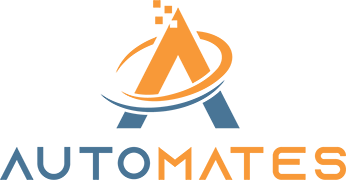August 25, 2025
Artificial intelligence (AI) is transforming the way businesses operate, with tools like ChatGPT, Google Gemini, and Microsoft Copilot becoming indispensable. Companies leverage these technologies to generate content, engage with customers, draft emails, summarize meetings, and even streamline coding and spreadsheet tasks.
While AI dramatically boosts efficiency and saves valuable time, it also presents significant risks when mishandled—particularly regarding your company's data security.
Even small businesses face these vulnerabilities.
The Core Issue
The technology itself isn't the problem; it's the way it's used. When employees insert sensitive information into public AI platforms, that data could be stored, analyzed, or even used to train future AI models—potentially exposing confidential or regulated information without anyone's awareness.
For example, in 2023, Samsung engineers unintentionally uploaded internal source code to ChatGPT, prompting the company to ban public AI tools entirely, as highlighted by Tom's Hardware.
Imagine this happening in your workplace: an employee inputs client financial records or medical details into ChatGPT for quick summaries, unaware of the security risks. Within moments, sensitive data could be compromised.
Emerging Danger: Prompt Injection Attacks
Beyond accidental data leaks, cybercriminals are exploiting a sophisticated method called prompt injection. They embed malicious commands within emails, transcripts, PDFs, or even YouTube captions. When AI tools process this content, they can be manipulated into revealing sensitive information or executing unauthorized actions.
In essence, attackers hijack AI systems without the AI realizing it.
Why Small Businesses Are Especially at Risk
Many small businesses lack oversight on AI usage. Employees often adopt AI tools independently with good intentions but without proper guidance, mistakenly thinking these tools are as harmless as search engines. They don’t realize their inputs might be stored indefinitely or accessed by others.
Few organizations have established policies or training to ensure safe AI usage.
Immediate Actions You Can Take
You don’t have to ban AI in your business, but you must implement controls.
Start with these four essential steps:
1. Develop a clear AI usage policy.
Specify approved tools, outline prohibited data sharing, and designate points of contact for questions.
2. Train your team.
Educate employees about the risks of public AI tools and how threats like prompt injection operate.
3. Adopt secure AI platforms.
Encourage use of enterprise-grade solutions like Microsoft Copilot that prioritize data privacy and compliance.
4. Monitor AI activity.
Keep track of which AI tools are in use and consider restricting access to public AI platforms on company devices if necessary.
The Bottom Line
AI is a powerful, permanent fixture in business. Companies that master safe AI practices will thrive, while those ignoring the risks expose themselves to hackers, regulatory penalties, and severe data breaches. Just a few careless keystrokes can jeopardize your entire operation.
Let's discuss how to safeguard your company’s AI use. We’ll help you craft a robust, secure AI policy and protect your data without hindering productivity. Call us at (619) 349-5850 or click here to schedule your 15-Minute Discovery Call now.





